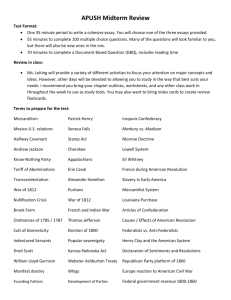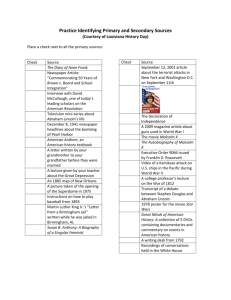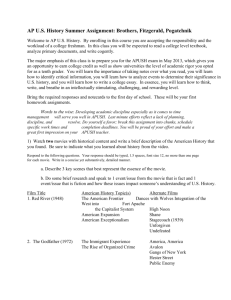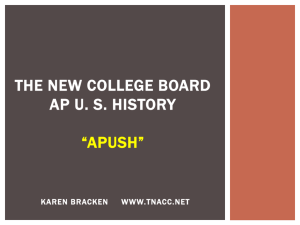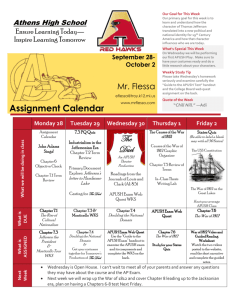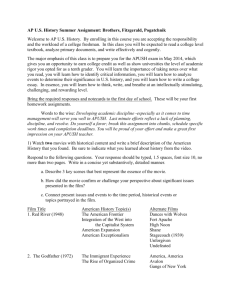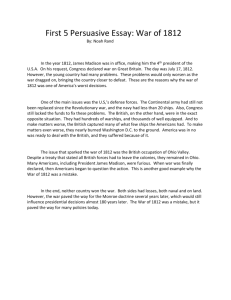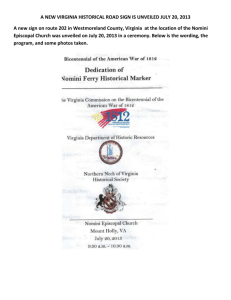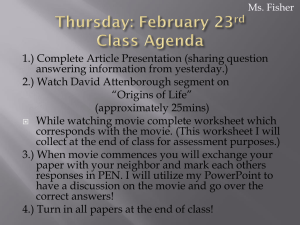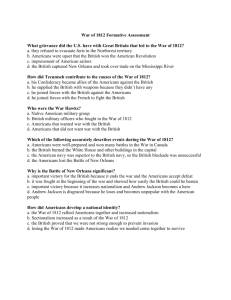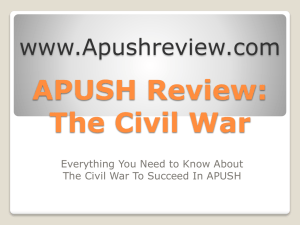APUSH Summer Reading Assignment
advertisement
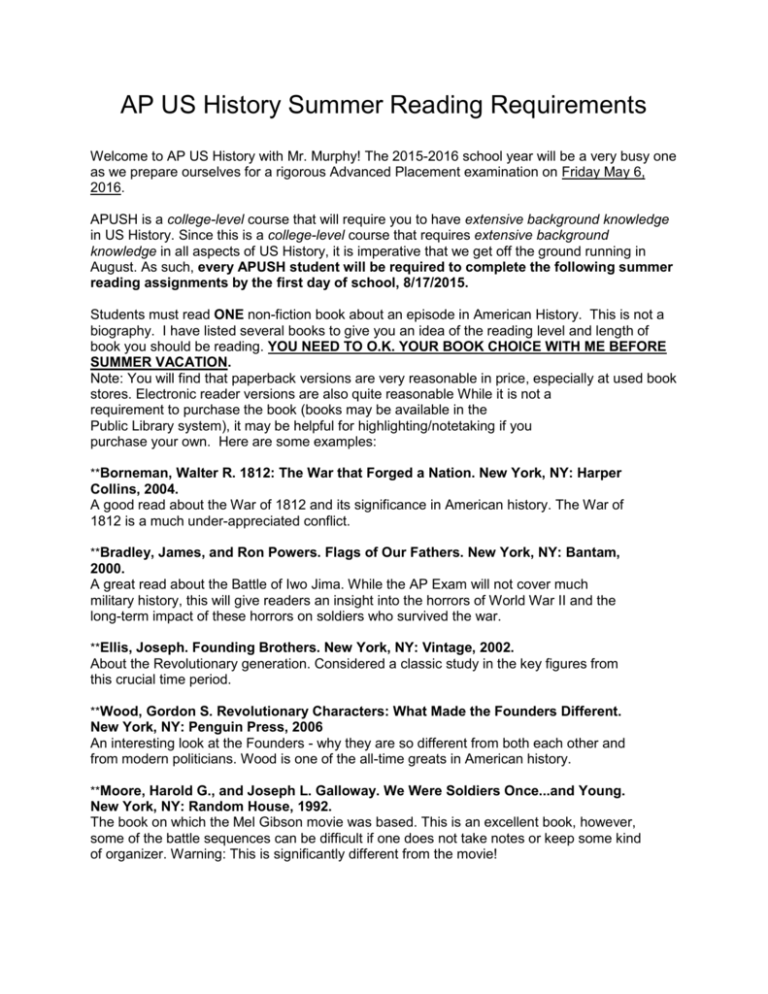
AP US History Summer Reading Requirements Welcome to AP US History with Mr. Murphy! The 2015-2016 school year will be a very busy one as we prepare ourselves for a rigorous Advanced Placement examination on Friday May 6, 2016. APUSH is a college-level course that will require you to have extensive background knowledge in US History. Since this is a college-level course that requires extensive background knowledge in all aspects of US History, it is imperative that we get off the ground running in August. As such, every APUSH student will be required to complete the following summer reading assignments by the first day of school, 8/17/2015. Students must read ONE non-fiction book about an episode in American History. This is not a biography. I have listed several books to give you an idea of the reading level and length of book you should be reading. YOU NEED TO O.K. YOUR BOOK CHOICE WITH ME BEFORE SUMMER VACATION. Note: You will find that paperback versions are very reasonable in price, especially at used book stores. Electronic reader versions are also quite reasonable While it is not a requirement to purchase the book (books may be available in the Public Library system), it may be helpful for highlighting/notetaking if you purchase your own. Here are some examples: **Borneman, Walter R. 1812: The War that Forged a Nation. New York, NY: Harper Collins, 2004. A good read about the War of 1812 and its significance in American history. The War of 1812 is a much under-appreciated conflict. **Bradley, James, and Ron Powers. Flags of Our Fathers. New York, NY: Bantam, 2000. A great read about the Battle of Iwo Jima. While the AP Exam will not cover much military history, this will give readers an insight into the horrors of World War II and the long-term impact of these horrors on soldiers who survived the war. **Ellis, Joseph. Founding Brothers. New York, NY: Vintage, 2002. About the Revolutionary generation. Considered a classic study in the key figures from this crucial time period. **Wood, Gordon S. Revolutionary Characters: What Made the Founders Different. New York, NY: Penguin Press, 2006 An interesting look at the Founders - why they are so different from both each other and from modern politicians. Wood is one of the all-time greats in American history. **Moore, Harold G., and Joseph L. Galloway. We Were Soldiers Once...and Young. New York, NY: Random House, 1992. The book on which the Mel Gibson movie was based. This is an excellent book, however, some of the battle sequences can be difficult if one does not take notes or keep some kind of organizer. Warning: This is significantly different from the movie! **McCullough, David. 1776. New York, NY: Simon & Schuster, 2005. An examination of the importance of one year in determining the outcome of the 13 Colonies’ fight for independence. Large focus on General George Washington. **Goodwin, Doris Kearns. Team of Rivals: The Political Genius of Abraham Lincoln. Simon & Schuster, 2006. This is the book on which the movie “Lincoln” was loosely based. It chronicles Abraham Lincoln’s political genius in winning over his political rivals to his side to greatly influence policy and American history. The writing assignment from your reading will occur on second day of class. You may take notes on 3X5 cards and bring them with you to class. The prompt is as follows: --In a thoughtful essay identify and explain first, what interpretive framework the author is bringing to his/her study of American history. In other words, what values or criteria does the author use to select those topics he covers in history, and what judgments is he/she making about American history? (Sometimes you can approach this from a negative standpoint by thinking not about what the author said, but what he didn’t. What did he/she leave out?) Do you detect any bias? (Don’t just write, “yes, there was a bias” elaborate, give examples if possible) Second, discuss the ways, if any, this book changed how you interpret American history.— ** Materials needed for the first day of class in August: --A three-ring binder filled with college-ruled paper or a large notebook (you'll need a big one). You might find a multiple-subject notebook is handy to separate notes and terms although the same could be accomplished using a three-ring binder. --Number 2 pencils and blue or black pens. ** Purchase a review book such as: AP U.S. History All Access Cracking the AP U.S. History Exam, 2015 Edition, Barron's AP United States History, 5 Steps to a 5. These are valuable resources for reviewing both at home and at school. They have practice multiple choice questions, FRQs and DBQs, as well as a practice AP exam. I would advise that you purchase and begin using a review book no later than September – this is not an exam for which you can successfully cram! Additionally, it’s a great resource to use while moving through the course. Failure to complete any of the above items will jeopardize a student's ability to pass the first semester. Furthermore, it will significantly reduce the amount of background knowledge that a student has to utilize when it comes time to take the Advanced Placement Examination in May, thereby making the exam far more difficult. If you have any questions about these assignments, please contact me immediately. For any questions that arise during the summer break, I can always be reached at sean.murphy@matsuk12.us
